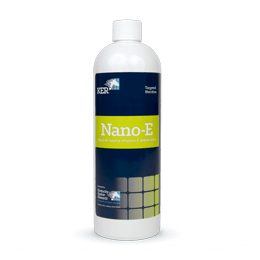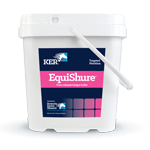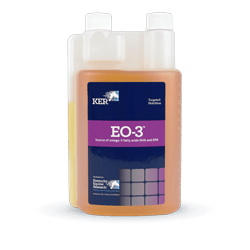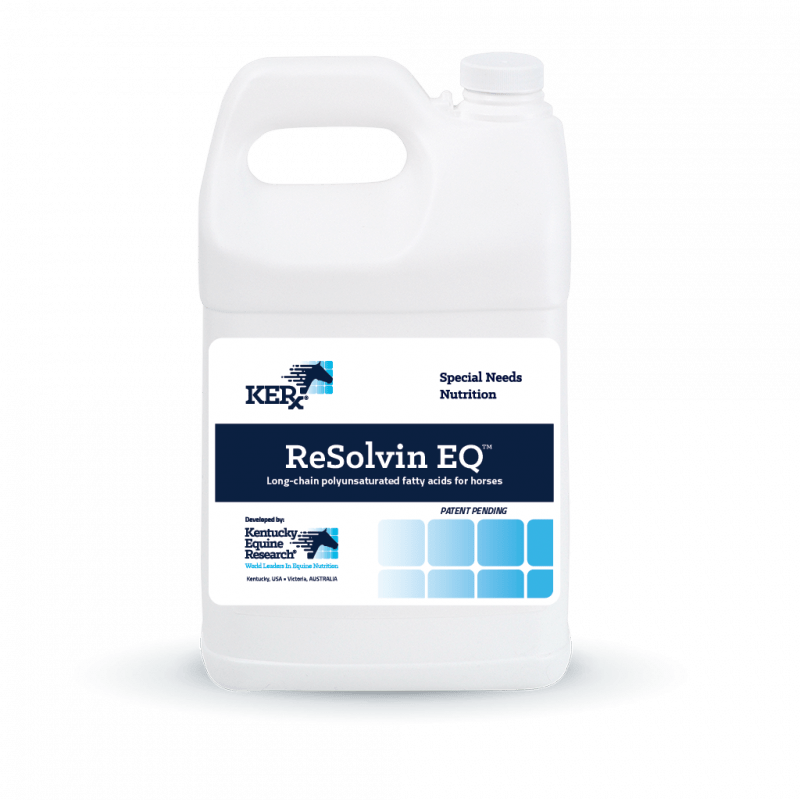
Equine gastric ulcer disease (EGUS) affects all classes of horses but is especially widespread among performance horses. Because of this, preventing and treating gastric ulcers remains a priority for those invested in the well-being of all horses. ReSolvin EQ™ is a revolutionary oil designed to support gastric health one meal at a time through strategic supplementation of long-chain polyunsaturated fatty acids.
Use ReSolvin EQ to increase the amount of long-chain polyunsaturated fatty acids in the diet and to protect horses from the adverse effects of gastric ulcers.
ReSolvin EQ: Targeted Supplementation for Gastric Health Support
Dietary supplementation of polyunsaturated fatty acids (PUFAs), particularly eicosapentaenoic acid (EPA), docosahexaenoic acid (DHA), and gamma-linolenic acid (GLA), has been a key focus of research efforts due to their positive effects in the body. Virtually every body cell features membranes composed of PUFAs, and these membranes are extremely responsive to dietary supplementation.
A study performed by Kentucky Equine Research assessed the relationship between red blood cell PUFAs and the incidence of and severity of squamous gastric ulcers when horses were fed short-chain polyunsaturated fatty acids (SC-PUFAs) or long-chain polyunsaturated fatty acids (LC-PUFAs).*
Horses were evaluated by gastroscopy for squamous ulcer score, gastric pH, and blood fatty acid composition prior to supplementation and after three months of supplementation with a corn-flax oil blend, which included the SC-PUFAs alpha-linolenic acid (ALA) and linoleic acid (LA), or ReSolvin EQ, a source of LC-PUFAs that contained GLA, EPA, and DHA.
Three months of supplementation with ReSolvin EQ increased red blood cell levels of GLA, EPA, DHA, DGLA (di-homo-gamma-linolenic acid) and AA (arachidonic acid) and reduced severe ulcer prevalence (38% in unsupplemented horses vs. 8% in horses supplemented with LC-PUFAs with a severe ulcer score, grade 3-4). SC-PUFA supplementation did not significantly elevate red blood cell GLA, EPA, DHA, DGLA, or AA, and severe ulcer incidence was not different (38% in unsupplemented horses vs. 23% in horses supplemented with SC-PUFAs with a severe ulcer score). Lower levels of red blood cell GLA, DGLA, AA, and EPA correlated with severe squamous gastric ulceration.
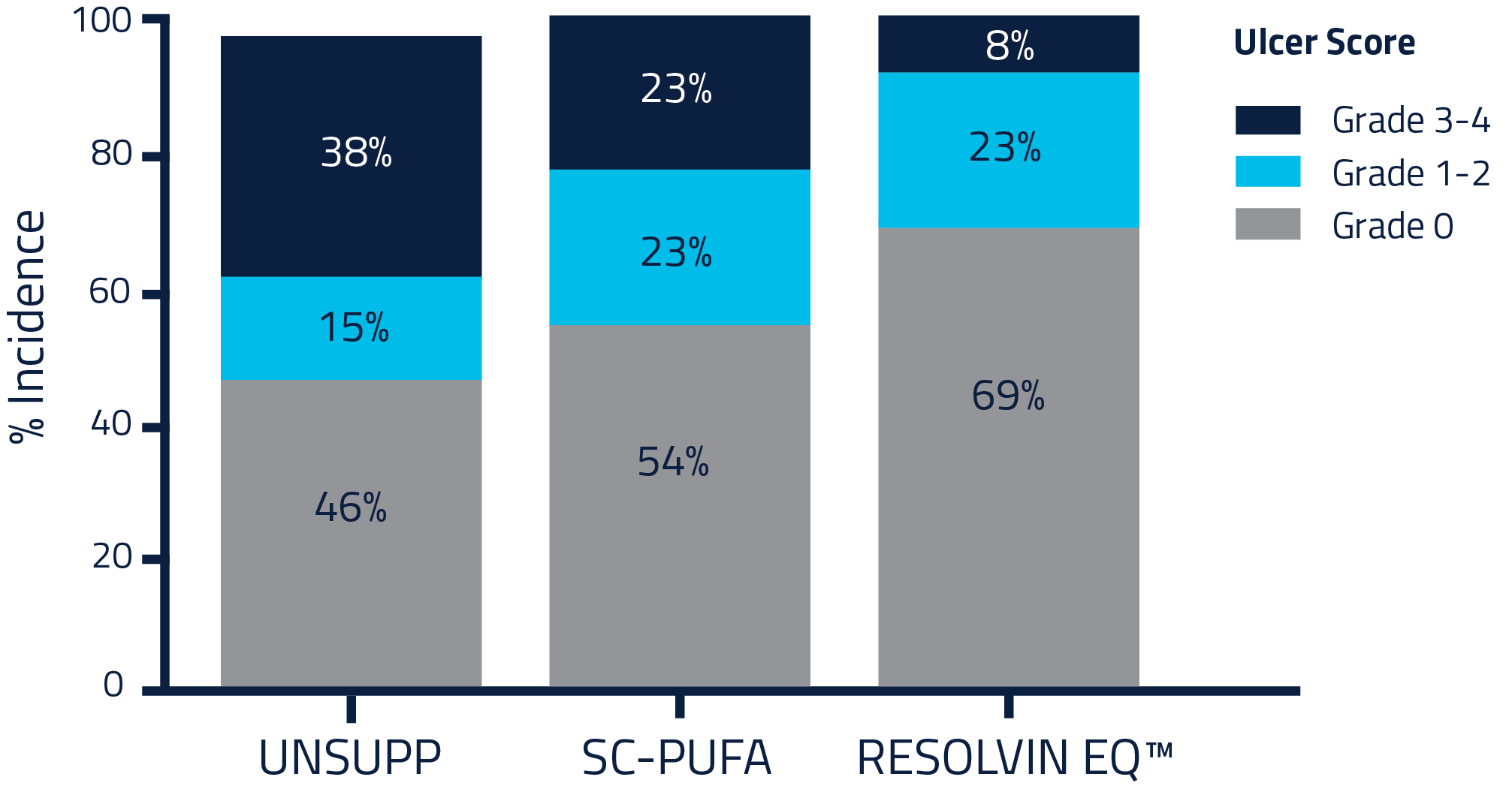
Figure 1. The incidence of squamous ulcer scores of 0, 1 to 2, and 3 to 4 per treatment in the aforementioned study.
In summary, targeted supplementation with ReSolvin EQ, a blend of EPA, DHA, and GLA, provides a potent anti-inflammatory product for horses predisposed to gastric ulcers. Read the ReSolvin EQ Technical Bulletin for an in-depth look at EGUS and the benefits of LC-PUFA supplementation.
Research Proven
Long-chain PUFA supplementation increased levels of GLA, EPA, DHA, DGLA, and AA, unlike short-chain PUFA supplementation, and was associated positively with prevention or resolution of severe squamous gastric ulceration.
Why choose ReSolvin EQ?
- Provides research-proven biological benefits to multiple systems of the horse
- Boosts anti-inflammatory mediators and reduce levels of pro-inflammatory mediators
- Reduces severity of equine squamous gastric disease in exercising horses
- Increases markers of aerobic capacity in muscles with a significantly reduced heart rate during intense exercise
- Increases tissue levels of the anti-inflammatory long-chain polyunsaturated fatty acids EPA, DHA, and DGLA, in contrast to the short-chain polyunsaturated fatty acids found in flax/linseed oil
- Provides anti-inflammatory support to horses with equine glandular gastric disease and recurrent exertional rhabdomyolysis, as inflammation is a key part of disease processes
- Lowers red cell and eosinophil levels in lung washes, which aids in the management of horses with equine asthma/inflammatory airway disease and those prone to exercise-induced pulmonary hemorrhage (bleeders)
Feeding Instructions
For use in equines only. Top-dress 60 mL per day on feed, divided equally between two meals. Horses fed ReSolvin EQ should also be fed a vitamin E supplement with superior bioavailability.
| Guaranteed Analysis* | Per 60 mL | |
|---|---|---|
| Crude Fat (min) | 96.0% | |
| Gamma-linolenic Acid (GLA) | 12.1% | 5.4 g |
| Total Omega-6 Fatty Acids | 18.7% | 8.3 g |
| Eicosapentaenoic Acid (EPA) | 11.1% | 4.4 g |
| Docosapentaenoic Acid (DPA) | 2.0% | 0.1 g |
| Docosahexaenoic Acid (DHA) | 9.5% | 3.8 g |
| Total Omega-3 Fatty Acids | 24.0% | 9.6 g |
*grams per 100 grams of fatty acid
ReSolvin EQ Technical Review Sheet
Feeding guidelines for racehores: Trainers and managers should adhere to the regulations set forth by specific racing jurisdictions prior to using any feed additives or supplements. HISA Compliance
References
Hauss, A.A., A.C. Montgomery, I. Nysether, and J.D. Pagan. 2023. Titration of GLA supplementation is linearly related to incorporation of DGLA into equine red blood cells. Journal of Equine Veterinary Science 124:104370.
Pagan, J.D., and A.A. Hauss. 2023. Type of polyunsaturated fatty acid supplementation affects red blood cell fatty acid composition in exercised Thoroughbreds. Journal of Equine Veterinary Science 124:104368.
Pagan, J.D., A.A. Hauss, E.C. Pagan, J.L. Simmons, and B.M. Waldridge. 2022. Long-chain fatty acid supplementation increases levels in red blood cells and reduces the prevalence and severity of squamous gastric ulcers in exercised Thoroughbreds. Journal of the American Veterinary Medical Association. doi:10.2460/javma22.06.0275.
Wesolowski, L.T., J.L. Simons, J.D. Pagan, and S.H. White-Springer. 2022. Impacts of exercise and DHA/EPA/GLA supplementation on plasma cytokines in Thoroughbreds. In: Proceedings of the International Conference on Equine Exercise Physiology (ICEEP) 11. Comparative Exercise Physiology 22 (Supp 1):S30.
About KERx Special Needs Nutrition
KERx is a division of KER Targeted Nutrition featuring products developed by Kentucky Equine Research and recommended by veterinarians to support specific nutrition-related challenges.
